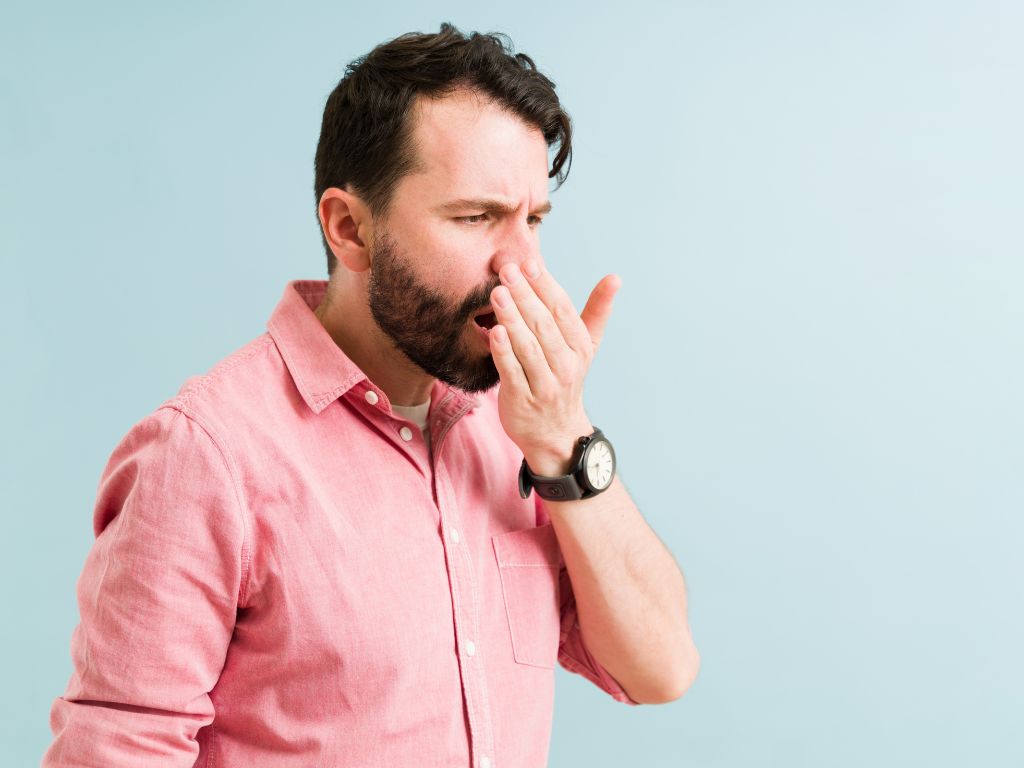Halitosis: 4 Unexpected Causes of Bad Breath

Most know that certain foods, tobacco, and poor dental hygiene are commonplace sources of bad breath, but have you considered other culprits behind the stench? Understanding halitosis and the four unexpected causes of bad breath is important to care for the issue properly. Explore these causes in this post.
1. Dehydration
Dehydration’s impact on oral health can be devastating. Without adequate hydration, the body can’t produce enough saliva to wash away food particles and neutralize acids produced by bacteria in the mouth.
This decrease in saliva makes room for bacteria to thrive, multiply, and release volatile sulfur compounds—the primary culprits behind the offensive odors. Staying well-hydrated will help maintain fresher breath and better oral hygiene.
2. Medication Side Effects
Antidepressants, antihistamines, decongestants, and diuretics are among the many medications known to cause dry mouth—a condition medically referred to as xerostomia. Unfortunately, dry mouth often leads to halitosis. Don’t stop taking your prescriptions out of fear of bad breath. Instead, talk to your healthcare provider about how to manage this side effect.
3. Stress and Anxiety
Chronic stress and anxiety can cause more than tense muscles or high heart rates; these mental health conditions may also affect your oral hygiene. Stress often changes the composition of saliva because stress promotes an environment that supports bacterial growth in the mouth. The best way to navigate this uncommon cause of halitosis is to engage in meditation exercises, find relaxing hobbies, or seek help from a medical professional.
4. Respiratory Infections
A stuffy nose forces you to breathe through your mouth. As the mouth dries out, bad breath ensues. Respiratory infections such as colds, flu, and sinus infections can impact oral health beyond the immediate discomfort. The bacteria or viruses responsible produce waste products that contribute to foul-smelling breath. Furthermore, some medications used to treat these conditions—including decongestants—may exacerbate dry mouth and intensify the side effects.
Keeping up with oral hygiene is crucial during these times; gently brushing your teeth, tongue, and palate after meals and using a saline nasal wash can help minimize the negative impact on your breath while your body fights off the infection.
The unexpected causes of halitosis or bad breath are treatable. Seek additional help for great oral hygiene from Woodstock Smiles. Our family-friendly dental clinic in Portland is ready to help with any oral complication that arises.
